Piet Retief Accommodation
Welgekozen Country Lodge
Bed & Breakfast Accommodation in Piet Retief
Grass & Wetlands
11 individually decorated double bed rooms with either showers or baths. Tea & coffee facilities in every room. TV with M-Net and DStv in every room. Superb English or continental breakfast. Evening meals. Laundry facilities available. …see more for bookings / enquiries and info.
Gooderson Natal Spa Hot Springs Resort & Self Catering
Holiday Resort Accommodation in Paulpietersburg
58.7km from Piet Retief
Facilities in the hotel include an airy dining room and terrace offering lovely views of the garden and pool areas. Buffet breakfasts and dinners as well as a la carte dinners are served …see more for bookings / enquiries and info.
Natal Spa Hot Springs & Leisure Resort Timeshare
Self Catering House, Cottage, Chalet Accommodation in Paulpietersburg
58.8km from Piet Retief
Escape to a rejuvenating oasis at Natal Spa Hot Springs & Leisure Resort, situated on the road between Vryheid and Paulpietersburg on the Battlefields Route. …see more for bookings / enquiries and info.
Gooderson Natal Spa Hot Springs Resort Caravan Park
Caravan or Camping Accommodation in Paulpietersburg
58.8km from Piet Retief
We offer 10 caravan stands, all with water and electricity and braai facilities on the stand. There are 3 sets of ablution and kitchen blocks at each end of the grounds that are serviced throughout the day. …see more for bookings / enquiries and info.
Penbi Game Ranch
Game Reserve And Bush Lodge Accommodation in Vryheid
59.5km from Piet Retief
Come and relax in luxury at one of the few undiscovered gems of Northern KwaZulu Natal. Conveniently situated 30km north of Vryheid and only 3km from the tarred Vryheid/Paulpietersburg main road. Penbi Game Ranch will reward you with a unique ... …see more for bookings / enquiries and info.
Luiperdkloof Trout Lodge
Self Catering House, Cottage, Chalet Accommodation in Newcastle
68.2km from Piet Retief
Luiperdkloof is a 1900 hectare working cattle farm located in the scenic Balele Mountains between Wakkerstroom, Utrecht, Vryheid and Paulpietersburg …see more for bookings / enquiries and info.
Summerfield Botanical Garden Hotel
Hotel / Boutique Hotel Accommodation in Manzini
70.6km from Piet Retief
Accommodation at Summerfield Luxury Hotel & Botanical Garden is as luxurious, tasteful, refreshing and tranquil as you can expect from a five-star establishment. …see more for bookings / enquiries and info.
Forellenhof
Self Catering House, Cottage, Chalet Accommodation in Wakkerstroom
76km from Piet Retief
You will be overwhelmed by a calm, comfortable, luxurious, tranquil, peaceful and relaxing atmosphere, beautifully and warmly decorated. Rooms with a view - sunrise over the mountain is inspiring and majestic! …see more for bookings / enquiries and info.
Piet Retief
The small town of Piet Retief is situated on the Assegai River in the extreme South East of Mpumalanga. Weary travelers heading from Gauteng to the coast would be well-advised to rest in one of the many well-maintained guesthouses in the area. Piet Retief is the last major town before reaching the Elephant Coast, so it is also a good place to stock up on last minute items.
It is situated in the center of huge timber plantations and was originally established in 1883 on the farms Osloop and Geluk. The town gets its name from the voortrekker Piet Retief who was killed by the Zulu King Dingane in 1838, and whose descendants were the founders of the original village. Settlers of many nationalities, many of them Scots and Germans, found Piet Retief to be a charming village and an attractive farming area. The surrounding area abounded with indigenous hardwoods, including yellowwood and other valuable timbers, and these were initially cut up into planks and sent to the Transvaal Republic.
There was large scale planting of wattle between 1900 and 1910, and after the advent of the railways in 1911, forestry and woodworking soon became important industries in Piet Retief, and timber was transported from the area to the whole of South Africa and exported overseas. Piet Retief has developed into an important center for the timber industry with over 75000 ha of forest. Scottish and German influence can still be seen in the area, and German is still the first language of many families.
More sought after Piet Retief accommodation categories include Piet Retief pet-friendly and Piet Retief wheelchair-friendly accommodation. If you are specifically pursuing these Piet Retief accommodation categories, then we highly recommend that you contact the accommodation owner directly to ensure that the facilities are satisfactory and to your liking.
The Piet Retief pet-friendly accommodation and the Piet Retief wheelchair-friendly accommodation facilities can vary between large Piet Retief Hotels as well as small room only accommodation. Self catering Piet Retief accommodation will occupy the majority of these listings.
99% of all Piet Retief guest houses listed on WhereToStay will display rates for your convenience. Occasionally a Piet Retief guest house will ask you to request a quotation.
WhereToStay tries to keep the Piet Retief self catering and Piet Retief b&b standards at the highest levels relative to tariffs charged. Misleading advertising related to any listings of Piet Retief B&B and Piet Retief self catering accommodation should be reported so that WhereToStay can act accordingly.
See our full list of Piet Retief accommodation special categories at the top of this page
AFRIKAANS
WhereToStay Piet Retief Akkommodasie wissel van `n verskeidenheid van spesifieke categoriee soos Piet Retief selfsorg akkommodasie, Piet Retief, b en b blyplekke en nog veel meer.
Meer gesogte Piet Retief slaapplek kategoriee sluit in Piet Retief troeteldier-vriendelike blyplekke en Piet Retief rolstoel-vriendelike akkommodasie.
As jy spesifiek vrae oor die voorsetting van hierdie Piet Retief blyplekke, sal dit raadsaam wees om kontak met die eienaars te maak om te verseker dat die fasiliteite bevredend is en na you hart.
Die Piet Retief troeteldier-vriendelike verblyf en Piet Retief rolstoel-vriendelike vakansie blyplekke kan wissel tussen Piet Retief Hotelle asook klein kamer akkommodasie in Piet Retief. Piet Retief selfsorg slaapplekke sal die meerderheid van hiedie inskrywings beset.
99% van alle Piet Retief gastehuise gelys op WhereToStay sal pryse vertoon vir u gerief. Soms sal `n Piet Retief gastehuis vra om `n kwotasie te versoek.
WhereToStay probeer om die lys van Piet Retief slaapplek standaarde op die hoogste vlakke (relatief tot tariewe) gehef hou.
Misleidende advertensies wat verband hou met enige lys van Piet Retief blyplekke moet aangemeld word sodat WhereToStay kan daarvolgens optree.
TOUCH






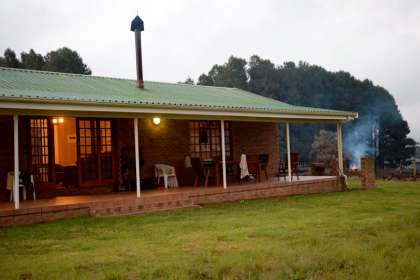
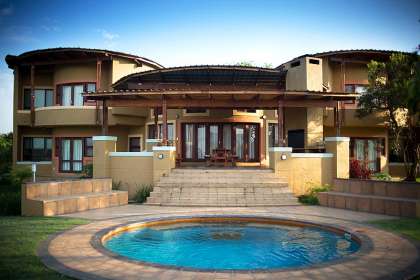
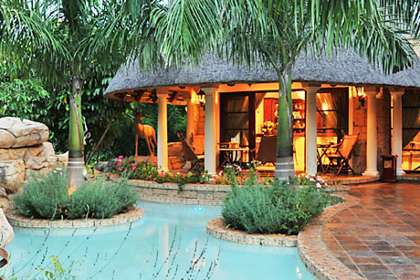

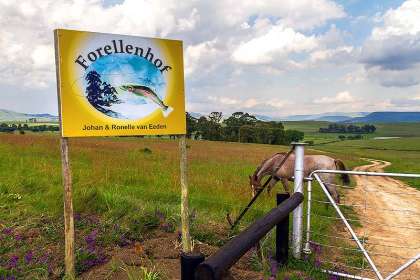
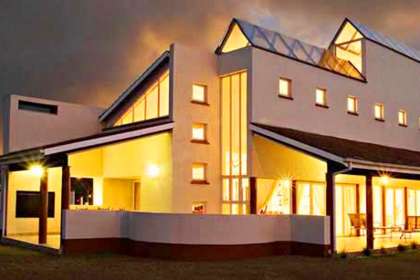
 Dutch Reformed Church - Piet Retief, Mpumalanga ©
Dutch Reformed Church - Piet Retief, Mpumalanga © 
